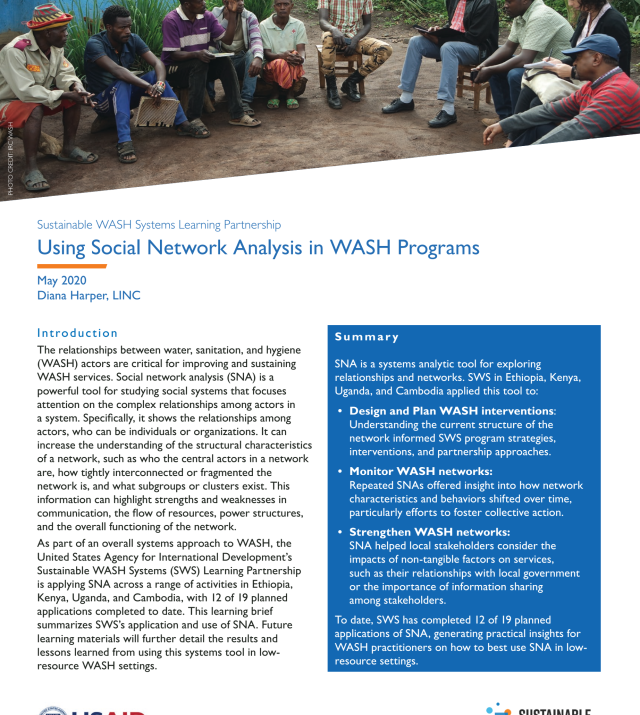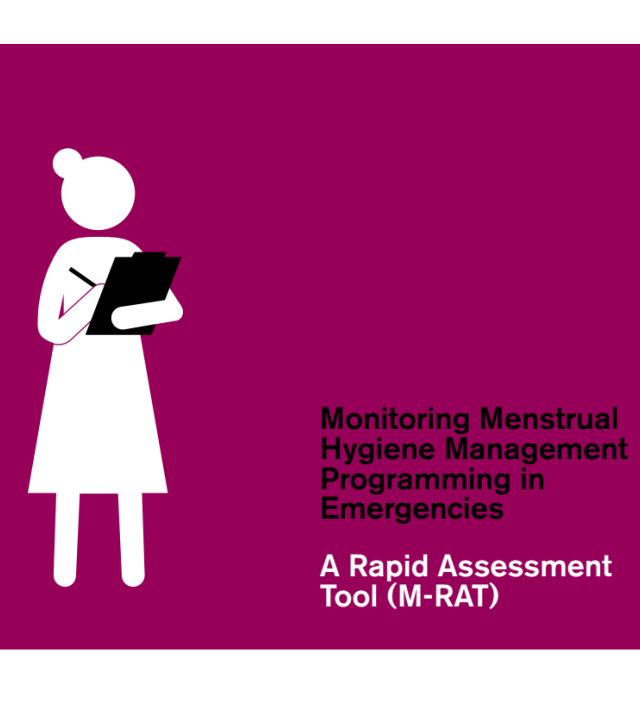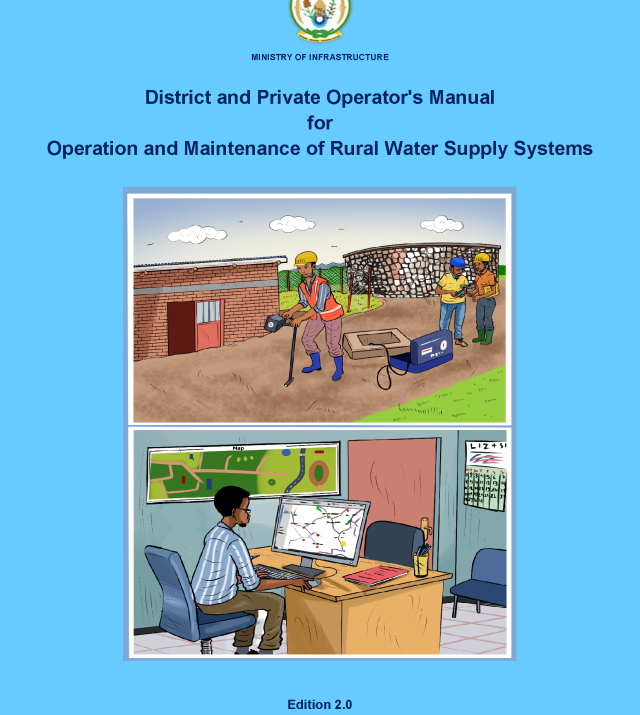
Collecting Life-Cycle Cost Data for WASH Services: A guide for practitioners

The life-cycle cost approach (LCCA) is a methodology to comprehensively identify and analyse the full costs of delivering water, sanitation and hygiene (WASH) services, including infrastructure and both direct and indirect support. It helps decision makers involved in planning, budgeting and service delivery understand the cost consequences of different service delivery models so that they can make informed decisions. This document is a guide for collecting data, conducting surveys and interviews, and contextualising the information. It addresses water services but is equally useful for assessing sanitation services. The guidance was developed for Ethiopia; for other countries, some terms may need to be adapted. The goals and realities of the project or programme in which the LCCA is applied may require you to be innovative and deviate from the outlined approach.
For water and sanitation, LCCA roughly consists of two parts: assessment of infrastructure and services, and assessment of costs and financing. The weight given to each part may depend on whether your area already has a monitoring system and good data on infrastructure and services: existing data may be enough to support the assessment of costs and financing. Regardless, the two parts build on each another. Especially if the LCCA will be used in long-term planning for water service delivery, then both parts of the assessment will need to be developed.

